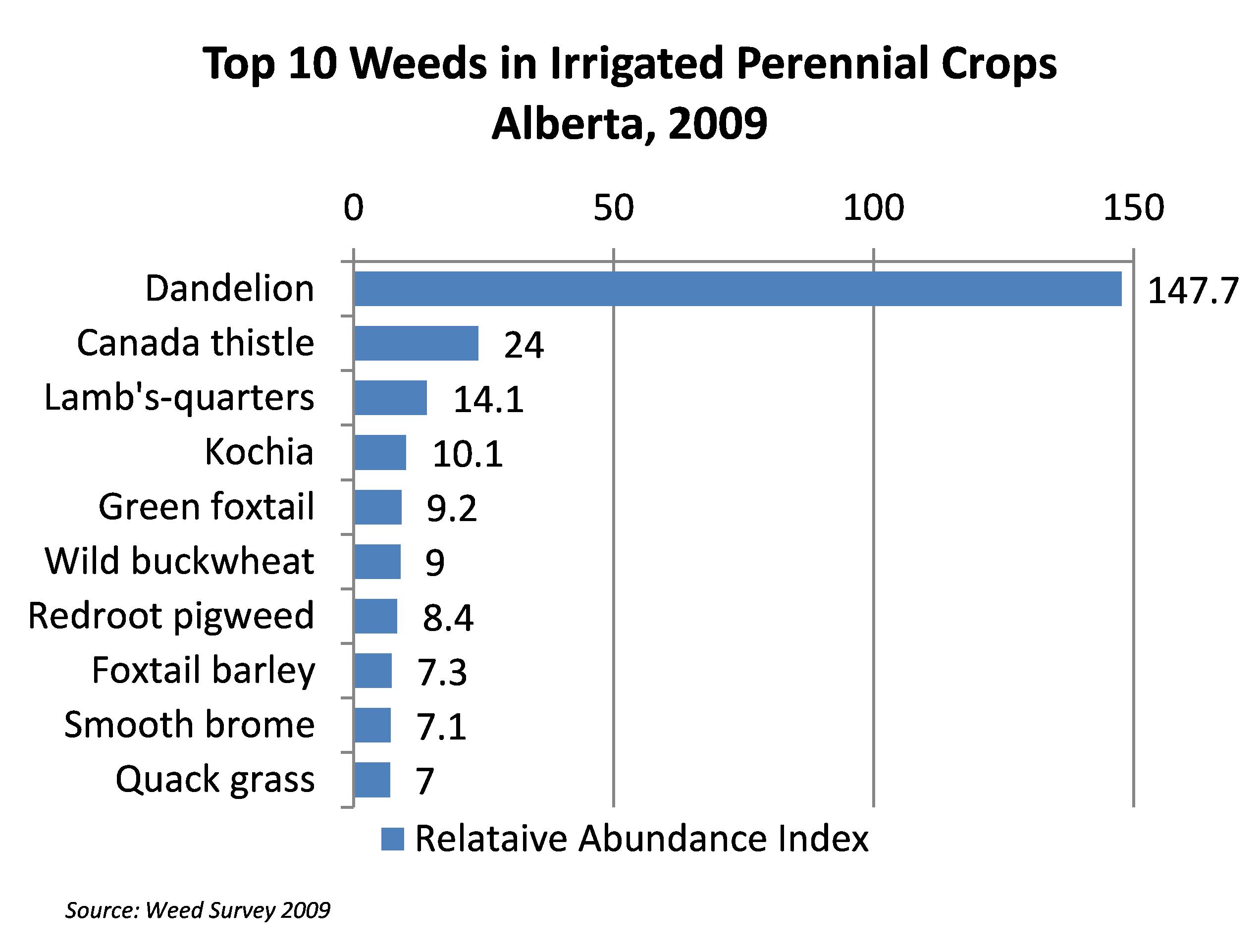Weed Control
Weed control is an important aspect in forage and cattle production as it affects forage yield and quality. Weed management can be accomplished through cultural, mechanical, chemical and biological controls. A more effective and sustainable weed management program should integrate two or more of these methods and consider long-term impacts. Over 95% of the weed control in a healthy forage crop comes from the competition provided by the existing forage stand.
Weeds on farmed land
In 2009, a survey that focused on weeds was conducted of common irrigated crops including annual cereals (spring wheat, barley, corn), annual broad-leaved crops (canola, sugar beets, dry beans, potatoes) and perennial crops (alfalfa, grass hay) in Alberta. For the 135 fields of irrigated perennial crops, the top 10 most abundant weeds were reported as: Dandelion, Canada thistle, Lamb’s-quarters, Kochia, Green foxtail, Wild buckwheat, Redroot pigweed, Foxtail barley, Smooth brome, and Quack grass.
Weeds on pasture
Other than plants that are poisonous to livestock, individual plants growing on a pasture are rarely a problem. However when large populations of a single species spread over a wide area, choking out and replacing the pasture grasses that provide nutrition to livestock, weeds become an economic issue.1
If weeds become a problem, they can compete or interfere for light, nutrients, water and space, directly influencing forage yield. A study by Chad and Bork (2004)2 assessed…
Click here to subscribe to the BCRC Blog and receive email notifications when new content is posted.
The sharing or reprinting of BCRC Blog articles is welcome and encouraged. Please provide acknowledgement to the Beef Cattle Research Council, list the website address, www.BeefResearch.ca, and let us know you chose to share the article by emailing us at [email protected].
We welcome your questions, comments and suggestions. Contact us directly or generate public discussion by posting your thoughts below.